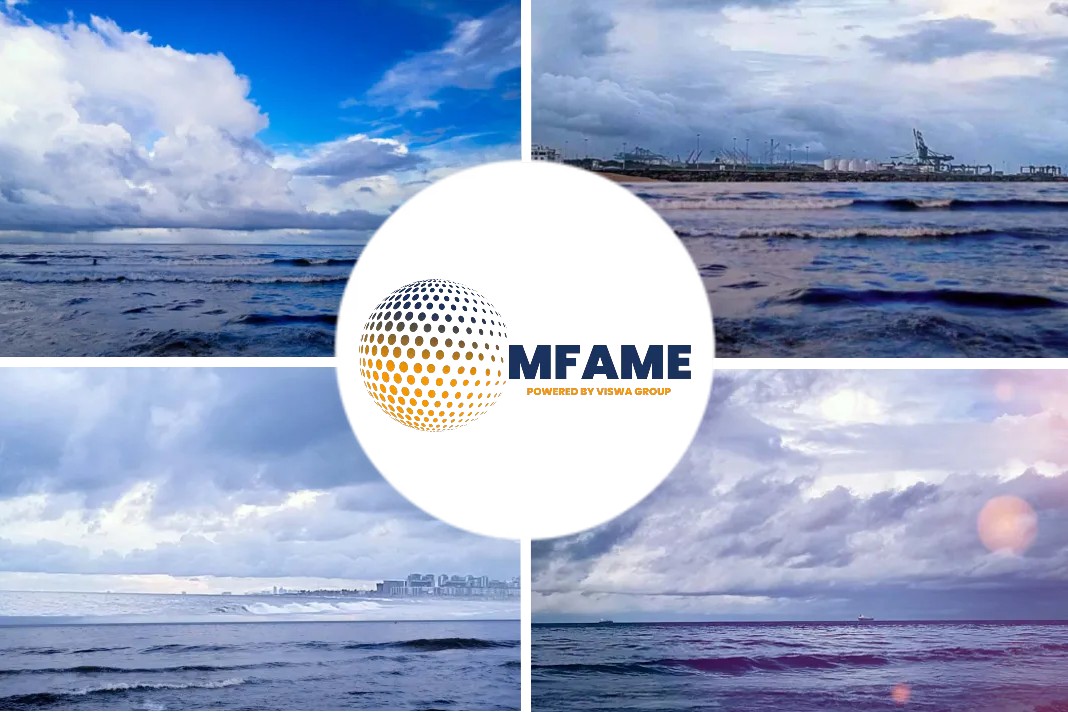
- Complying with strict environmental regulations requires ship operators to secure a reliable supply of specialised marine chemicals for scrubbers, SCRs etc.
- When IMO 2020 0.50% sulphur regulation came into effect, ships equipped with exhaust gas cleaning systems needed a reliable supply of caustic soda.
- Through a partnership with DongHwa Entec of Korea, TECO Chemicals developed the TECO Urea Generator, which enables ships to blend AUS 40% solution onboard.
TECO Chemicals managing partner Gaurav Saini says environmental regulations require ship operators to buy specialty marine chemicals, and his company can offer not just the best and most effective products but also advice on how to comply
Chemical supplier
Complying with strict environmental regulations requires ship operators to secure a reliable supply of specialised marine chemicals for scrubbers, SCRs, ballast water treatment systems, or cleaning their holds and tanks.
TECO Chemicals has been doing just that for almost 30 years, says TECO Chemicals managing partner and executive board member Gaurav Saini.
“We started as a Norwegian company in 1994, as part of TECO Maritime Group, but even than our first steps were in Singapore,” he says.
“We made a foray into the chemical tanker market and have expanded since. Anytime a cargo change happens, the tanks have to be cleaned to wall wash standards.
We sell specialised chemicals for this particular cleaning and also provide guidance to shipowners, charterers and operators on how to clean their ship,” explains Mr Saini.
Cleaner shipping
Chemical tankers, designed with stainless steel or specially coated tanks, can carry such hazardous cargoes as caustic soda or sulphuric acid, or even food products such as palm or vegetable oils.
This requires their cargo tanks to be cleaned to strict international standards in between cargo loads — a responsibility that falls to the shipowner.
When IMO 2020 0.50% sulphur regulation came into effect, ships equipped with exhaust gas cleaning systems needed a reliable supply of caustic soda.
This created an opportunity for TECO Chemicals to expand its business. However, instead of just procuring the chemicals in bulk quantities and storing them at ports to supply to shipowners and charterers, TECO Chemicals wanted to go a step further.
Sustainable solution packages
“What differentiates us is that we do not just sell chemicals,” points out Mr. Saini. “We provide sustainable solution packages including full turnkey services to owners or charterers that are buying caustic soda for their scrubber systems.
We send people on board, perform pumping, and have barges in case the ship cannot be supplied alongside,” he explains.
Besides providing caustic soda 50% solution, TECO Chemicals also takes a one-stop-shop approach for the 40% aqueous urea solution (AUS) used in selective catalytic converters (SCRs) for NOx emissions, making supply available via barge, tanker truck or IBC.
Raw material price rise
However, Mr. Saini explains that some port facilities and terminals do not allow a barge or tanker lorry to come alongside a ship to supply urea. This means the urea can only be supplied by IBC. This is problematic and expensive for shipowners.
“If an operator buys urea in an IBC, they have to transfer them on board and the crew has to perform the complete pumping operation by themselves, and then dispose of this IBC at the next port,” says Mr. Saini.
“This is a huge cost for the ship operators plus the fact that urea prices have been affected by the war in Europe. Raw material prices have risen by 60% or more in the last two years.”
Cost-effective solution
Even prior to the Russia-Ukraine War, costs were rising because China had stopped exporting this particular kind of chemical.
“We needed to come up with a cost-effective solution for shipowners,” says Mr Saini.
Through a partnership with DongHwa Entec of Korea, TECO Chemicals developed the TECO Urea Generator, which enables ships to blend AUS 40% solution onboard.
SCR storage system
“We decided the best solution was to enable vessel operators to blend the urea onboard,” he says.
“The generator produces urea solution from powder trills and mixes it in tanks and delivers it directly to either the engine system or to the SCR storage system for storage and use.”
Adds Mr. Saini, “Many owners are showing an interest in the generator as it presents several advantages.
This will save them money on logistics, barging costs, onboard storage space and manpower. The urea generator is also a more sustainable solution in the long run.”
Did you subscribe to our Newsletter?
It’s Free! Click here to Subscribe.
Source: Riviera















